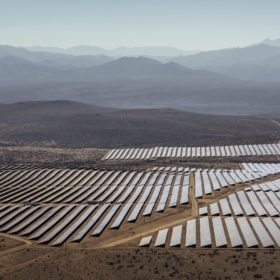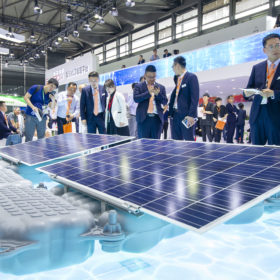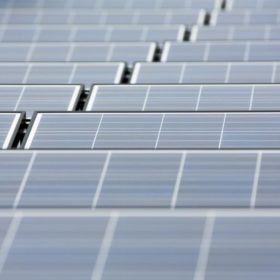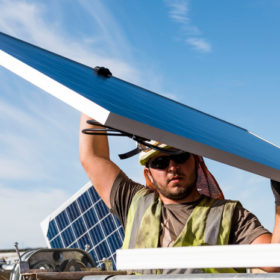The Weekend Read: The hows and whys of corporate PPAs
More and more corporations are signing contracts with wind and solar projects, and as this happens the space is becoming broader and more complex.
GT Advanced Technologies opens silicon carbide factory in New Hampshire
The upstream technology company plans to sell silicon carbide for applications including advanced inverters for solar and battery storage, as part of a new emphasis on materials supply.
GT Advanced Technologies opens silicon carbide factory in US’ New Hampshire
The upstream technology company plans to sell silicon carbide for applications including advanced inverters for solar and battery storage, as part of a new emphasis on materials supply.
Global PV module prices collapse
The predicted fall in global PV module prices appears to have already begun, with PVInsights and EnergyTrend reporting average prices in the $0.27-$0.37/W range.
Court strikes down Canadian solar makers’ attempt to stay solar tariffs
Three manufacturers with Canadian module assembly have had no luck in trying to get a preliminary injunction against the Section 201 tariffs.
US could slap additional 25% tariffs on Chinese cells, modules
The new round of IT-related tariffs could make it more expensive for any manufacturers planning to import cells from China for module production in the United States.
Tesla to lay off 9% of workforce, quit Home Depot
The company will return to selling solar primarily through its stores and online.
SunPower and Enphase team up with microinverter acquisition
Through the deal SunPower gets $25 million and stock; however the bigger deal may be Enphase’s right to be the company’s exclusive residential inverter supplier.
United States: Large-scale solar stays strong in Q1 2018
Thanks in no small part to modules stockpiled before the Section 201 tariffs hit, both the utility-scale and “non-residential” market segments grew year-over-year in Q1. And while the duties are expected to play a greater role in 2019, there are other factors supporting ongoing market growth.
First Solar breaks ground on 1.2 GW factory in the US
The plant is the second-largest planned in the Western Hemisphere, and will triple the thin film module maker’s manufacturing capacity in the United States.










